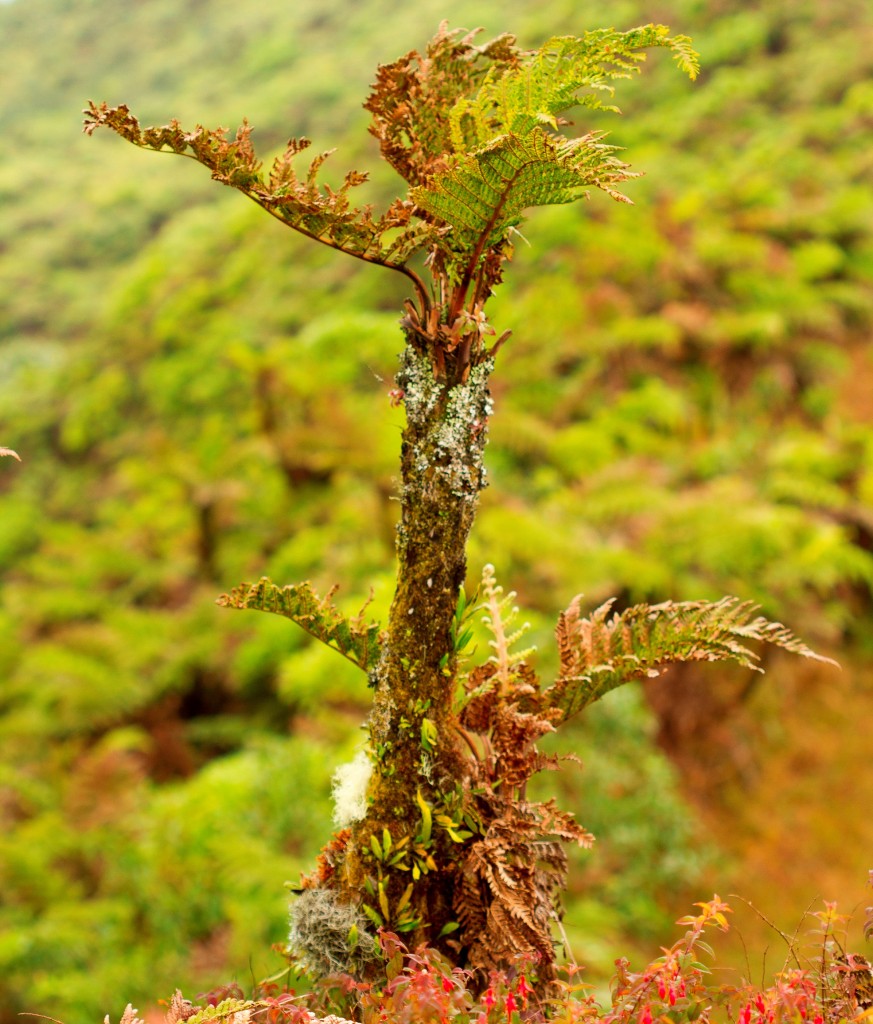St Helena has 45 endemic flowering plants and ferns, over 400 endemic invertebrates and approximately 26 endemic bryophytes. Many of these species are highly threatened due to habitat fragmentation, competition and/or predation from invasive species.
The Terrestrial Conservation Section is responsible for the conservation of the Island’s native and endemic flora species and habitats. The section consists of 12 staff seperated into two teams: the Habitats Team, led by the Terrestrial Conservation Officer, and the Species team, led by the Nursery Officer.
The Habitats Team
The Habitats Team work principally within the Peaks National Park and are responsible for cloud forest habitat restoration, which includes: invasive species management, endemic plant propagation (at the onsite nursery), planting and maintenance of natural and restored sites as well as Species Diverse Living Gene Banks.
The Species Team
The Species Team run the endemic nursery (at Scotland), and are responsible for safeguarding endemic species through wild seed collection, storage and propagation, and planting and maintenance of wild restoration sites around the Island as well as a Living gene bank.
Additionally, the Terrestrial Conservation Section is responsible for contributing to policies and action plans that are relevant to species conservation; work with other departments in SHG to improve environmental performance; provide expert advice when requested; and raise local awareness of conservation issues, among many other duties.
The Section collaborates with local and international organisations on conservation issues and, on projects to protect and gain more information on these highly endangered species and their habitats.
Service Provision
The activities completed by the Terrestrial Conservation Teams contribute to the provision of the following services:
- Water security – the restoration of native cloud forest habitat will contribute towards increased mist interception, water retention and water release capacity
- Protection of native/endemic biodiversity
- Protection of the Natural Capital for locals as well as the tourism industry
- Opportunities to complete academic research, educational and promotional activities
